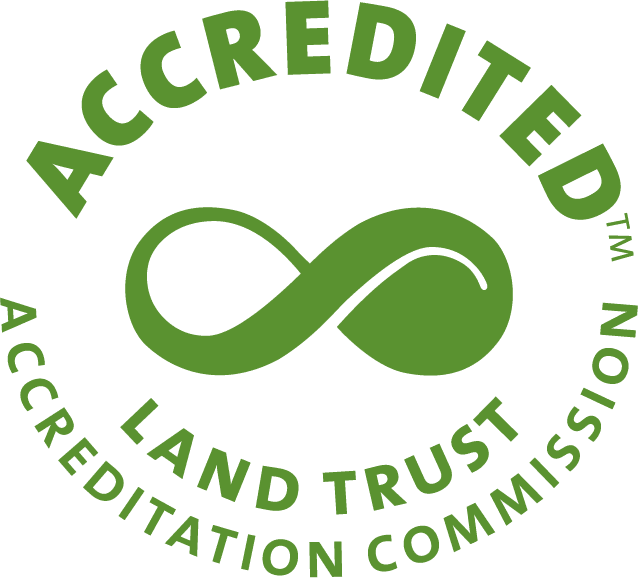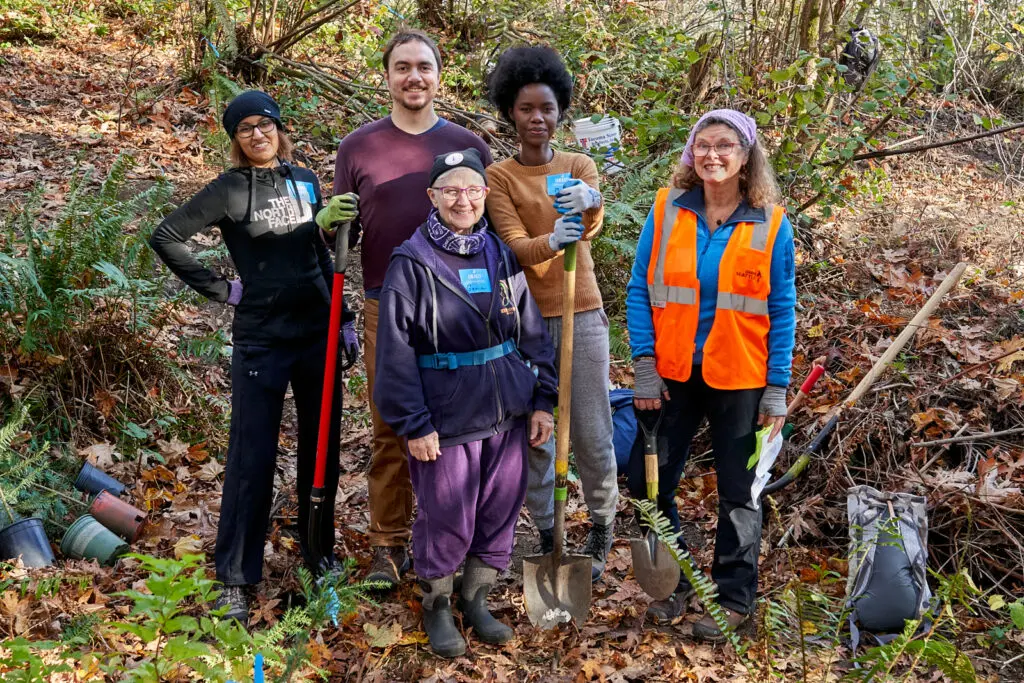HAMILTON, Wash. 30 APRIL 2019 — Today, the conservation group Forterra announced that is has committed $1 million to help residents move out of the flood plain and to restore the river in Hamilton, a small Skagit Valley community that for years has faced recurrent and devastating floods.
In coordination with Hamilton’s leaders and residents, Forterra has purchased a 40-acre upland parcel, with the goal of building a sustainable new development that will give families and individuals the chance to move out of harm’s way. Shifting the community to higher ground will also enable restoration of a section of the Skagit River that is key to threatened Chinook salmon and Orca populations.
“If we want Chinook and Orca to thrive, we need rural communities like Hamilton to thrive. We want to help create a new town center where residents are safe from floods, where they can put down roots, and where they can feel proud of their role in protecting the natural resources around them,” remarked Michelle Connor, Forterra President and CEO.
Forterra has been working closely on the new development with the Hamilton Town Council, led by Mayor Joan Cromley. The river restoration effort builds on the work of a number of partners, including the Swinomish Indian Tribal Community, the Upper Skagit Tribe, the Sauk-Suiattle Tribe, Skagit Land Trust, Skagit County, The Nature Conservancy of Washington, Skagit Fisheries Enhancement Group, Skagit Watershed Council, and the Washington State Salmon Recovery Funding Board.
Forterra’s $1 million investment in the project was made possible by a generous legacy gift from a donor deeply committed to wildlife. Additional funding is anticipated from philanthropy, private investment, FEMA, and other government sources.
Imagining a new rural town
The aim of the project is to create a new town center (“Hamilton Center”) that is rooted in sustainability and honors the community’s history, culture, and natural assets. The engineering firm HDR has been working pro bono with Forterra and the town to address infrastructure challenges and keep the development’s footprint light on the land. Likely features of the project include:
- Affordable homes for current Hamilton residents.
- Retail and community space that could be used for a coffee shop, a farmer’s market, the local food bank, or a recreation center.
- Buildings constructed from locally- and responsibly-sourced Cross Laminated Timber (CLT).
- Ample open space, which could include playfields, parks, and natural areas.
- “Net Zero” goals for energy consumption, water use, and carbon emissions. Means to this could include affordable, available technology like solar photovoltaics, combined with high-capacity batteries, rainwater collection, and recycling systems.
- Advanced wastewater and sewage treatment via new, proven technologies, avoiding negative effects on the environment and river downslope.
A restored ecosystem for nature and people
Set about 30 miles east of the tulip country around La Conner, Hamilton nestles in a deep oxbow of the Skagit River, a stretch that supports one of the largest wintering colonies of bald eagles in the country and serves as a spawning site for all five native species of Pacific salmon. Among these are Chinook, listed as threatened under the Endangered Species Act, and a prime food for the struggling Orca of southern Puget Sound. The Skagit River produces 60 percent of Puget Sound’s wild Chinook salmon. Shifting Hamilton’s town center upland will enable significant restoration of this segment of the river.
A proud town with a storied past
Today Hamilton is home to about 300 people, but during its peak as a center of coal mining and logging, its population surpassed 2,500. In 1903, a national magazine predicted the town would become “the Pittsburgh of the West.” However, as the coal seams gave out, and most big trees succumbed to the axe, Hamilton fell on hard times. And flooding made matters profoundly worse. Despite warnings from Native Americans about the risk of flooding, the town’s founders settled in what they viewed as prime riverside real estate. Then the waters came, with particular savagery in 1896, 1980, 1990,1995, 2003 (a flood severe enough to make national TV), 2007, and 2017. Today, a significant flood hits the town roughly every three-and-a-half years.
A model for climate adaptation
Scientists with the Skagit Climate Science Consortium say severe flooding will become even more frequent on the river over the coming years. Without intervention, damage to property and disruption of lives will increase, with the costs of recovery to be borne locally and by state and federal taxpayers. Towns across the U.S. face similar threats as climate change worsens. One aim of the project is to prototype a model for thoughtful, sustainable climate adaptation strategies.
QUOTES
Michelle Connor, President and CEO, Forterra
“We know communities everywhere are going to face more and more disasters as climate change worsens. Residents of Hamilton are pioneering a solution. By reimagining their town, this small community will help solve a huge problem — dwindling Chinook and Orca populations. They’ll also ensure that their families will be able to stay in the area for generations to come.”
Joan Cromley, Mayor, Hamilton
“The Town of Hamilton has been trying to move out of the floodplain for over five decades. We’ve been waiting to take steps in the right direction, and that time is now. This is a chance for Hamilton to get right with the land and shift to a new community nearby where we can protect and steward this stretch of river. We want a town where everyone can afford a comfortable home, and where families can put down roots for their children and grandchildren. We’re proud to be a part of this.”
Chairman Brian Cladoosby, Swinomish Indian Tribal Community
“When settlers came to Fir Island at the mouth of the Skagit River, they asked where to build their houses. Our elders said, ‘Do you see those mud marks up on the trees? Build above there.’ Unfortunately, recent settlers did not hear that advice and built right next to the river in harm’s way. We are thankful for the efforts of Forterra and Mayor Cromley for beginning this important effort to move people out of the floodplain and reconnect our salmon with the habitats that are so critical to their existence.”
Scott Schuyler, Policy Representative, Upper Skagit Indian Tribe
“The Upper Skagit Tribe has inhabited the Skagit Valley since time immemorial. Our villages extended from Mount Vernon upstream to Newhalem with smaller seasonal hunting and gathering camps extending into Eastern Washington. We were the salmon people of the Skagit River. We have fished in areas like Hamilton for thousands of years. By repairing habitat to ensure sustainable fisheries for future generations, we can honor the sacrifices of our ancestors.”
Richard Brocksmith, Skagit Watershed Council
“During high water, floodplains and estuaries are a sanctuary for young fish to hide and rest, which is why these habitats are our highest priorities for restoration in the Skagit River and Puget Sound. Floods form and maintain side channels that provide year-round feeding opportunities. This project works with the local community to move them out of harm’s way and creates a win for both them and the environment.”
Kaia Nesbitt, HDR Development Director
“With Hamilton, we have a chance to create a model for attainable rural development that serves and restores its ecosystem—something that will become increasingly important in the face of climate change. We’re addressing infrastructure challenges with smarter, economically viable solutions. We’re also working to build a community with net zero energy, water, and carbon footprints, which is incredibly exciting.”



